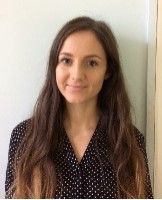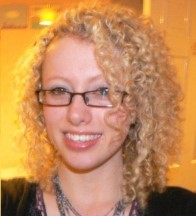Graduate Profiles
Many graduates from the Department of Mathematical Sciences have gone on to have successful and varied careers.
Below you can find a selection of profiles from some of our recent graduates. Find out what they made of their maths course, hear about their current job roles and read their top tips for future students.
Archie Middlemiss

Degree Details: Mathematics (G100)
Current Role: Mathematical Modeller
Current Employer: NSG Group
What was your best experience while studying your course at the University of Liverpool and why?
Best experience was through a combination of modules that had a primary focus on cartesian and vector calculus. I thoroughly enjoy the computational and theoretical maths behind calculus.
While you were at university, what were the beneficial things outside of your course that helped you to get ready to begin your career?
Tutoring is one of the best ways to further your passion, interest and understanding of a subject. I used to aim for 2-3 hours a week which gave me a sense of satisfaction and achievement but also helped to top up my bank account which took some financial stress off.
In which ways did your course help you to prepare for your current role?
I have a lot of creative freedom in my current role. The obvious benefits are the close correlation between what I have studied at uni and what I do in my role now but if it wasn’t for the module selection I chose, I would have ended up on a different pathway to now.
Can you please share an insight into your current role, what do you enjoy the most?
I currently work for a mass scale glass manufacturing company. I primarily work on modelling of the furnace and the molten glass flows inside that. I regularly use special software to achieve this as well as mathematical/physics theory.
What challenges did you face as a recent graduate in a new workplace? How did you overcome these?
The change from manually solving things to now interpreting the results is a big change however after following the right guidance this has become far simpler and easier.
Do you have any top tips to share with future and current students? (in terms of preparing for work?)
Follow what you enjoyed doing at uni. Don’t write anything off just because you don’t see a future in it or because there aren’t any jobs with those specific labels. Try and discover new opportunities for yourself rather than following a path that others have had success in because it does not guarantee you the same success.
Marianne Scott
Degree Details : BSC in Mathematics and Statistics 2017
See below case study with Marianne - PHD in Applied Mathematics
Tell us about the steps you took whilst studying at the University of Liverpool?
Alongside making sure I got the best grades I could in my course, I spent a lot of time looking for placement opportuinites so that I could try out all the different kinds of career options.This in turn helped me to network and meet new people to further my career.
What do you enjoy?
I enjoy the freedom that comes with it.I get to define my own ours,manage my own project,and implement my own ideas,which is cool.Researching something thats so interesting to me is a massive part of why i love the job and all the opportunites that come with it.
Advice to Students?
You need to make sure that you have a passion for what you're looking to research and that you're gaining knowledge to be able to do that research.Get some experience within the area you want to look at,as that will tell you whether or not you want to do that and if you're capable of doing that.
Dr Jaclyn Bell
Degree Details : MSc in Mathematical Sciences 2016- PHD in Theoretical Particle Physics
See below case study with Dr Jaclyn Bell
Tell us about the steps you took whilst studying at University of Liverpool?
When my friends were doing internships, I was doing other bits of work.Then i ended up going into academia, and started planning to do more research.I was reading around my subjects and focusing more on theoretical physics through my module choices.
Career Progression you took ?
I moved to London working on public engagement in the science museum.I then worked behing the scenes in community engagement with the British Science Association, and then became a project manager.After, I ran National stem programs right across the UK and now I've gone back into academia.
Advice to Students?
My advice in getting involved in public engagement is to volunteer within a university department first.Getting involved in British Science Festival, British Science Week, and local festivals is a good start,and if you are serious then look into doing a masters in science and communication.
In this short interview, Dr Jaclyn Bell highlights her journey from a Bachelor to Masters and finally completing a PhD at the University of Liverpool and her experiences not knowing what career she wanted at the end. She explores the mistakes she made along the way and regrets she has about her University time.
Lydia Dutton
Degree Details : Master of Mathematics 2016
Organisation: Associate Consultant ( Pensions Actuarial) Lane Clark & Peacock LLP
See below case study with Lydia Dutton
Tell us about the steps you took whilst studying at University of Liverpool?
I took part in the summer research internship organised by the Maths Department during my second year.I was very fortunate to be given the opportunity to present my final year project at the Insurance Mathematics Economics conference in Atalanta, Georgia.
Describe the Challenges you faced?
The biggest challenge is learning how to explain complicated concepts in the simplest way.Going from sitting quietly at the back of lecture theaters to presenting work to clients is a huge change,and is quite overwhelming at first
Advice to Students?
Focus as much as you can on building strong comminication skills.There are thousands of bright math graduates out there - what makes a great acturary is being able to explain complicated concepts in the most simple way.
Katy Gallagher

Degree Details: Mathematics (MMath) 2012 and PhD in Singularity Theory 2017
Current Role: Higher Statistical Officer
Organization: HMRC
What was your best experience while studying your course at the University of Liverpool and why?
I loved my time at the University of Liverpool, so much so that I stayed there for 8 years! I enjoyed meeting new people, making friends and then having the opportunity to study a variety of modules. By having the freedom to choose what modules to study I was able to find areas of Maths that I enjoyed most. This led me to stay on after my undergraduate degree to study for my PhD in Singularity Theory and work with my supervisor Victor Goryunov. Graduating with a PhD is my proudest achievement and gave me many opportunities such as attending conferences in France and New York!
While you were at university, what were the beneficial things outside of your course that helped you to get ready to begin your career?
I helped with the Further Maths Support Programme which involved weekly study sessions for 16-18 year olds. This involved catering explanations to individual students, a skill that has translated to my current role as I have to explain the results of analysis to various other teams and make sure it is in a format that can be easily understood by anyone.
As I neared the end of my degree and began to consider what to do next, I found the Careers and Employability team to be extremely helpful. I was able to have someone check over my CV and give me advice on how to improve it. I also attended various talks on application processes such as interviews and psychometric tests, these gave me an insight into what to expect.
In which ways did your course help you to prepare for your current role?
My course helped me to prepare for my role by giving me the opportunity to study different statistical modules such as introductory modules which introduced me to different statistical models and applied modules such as medical statistics which demonstrated how they can be used in real world environments.
Although my PhD was in Pure Mathematics and I now work as a Statistician the skills I gained from working on my PhD have been invaluable to my current role. The analytical skills I developed I now use daily and the presentation skills I acquired have been crucial to delivering the results of various pieces of analysis in a format that can be understood and used by other teams.
Can you please share an insight into your current role, what do you enjoy the most?
I am currently a Higher Statistical Officer in HMRC working in KAI (Knowledge, Analysis and Intelligence). I am part of the team that carries out analysis on the Error and Fraud in the Tax Credits population. This involves an annual publication on gov.uk and carrying out analysis which can then be used by other teams to reduce the amount of error and fraud.
There are many elements of my role that I enjoy. I work on variety of projects which means every week in my job is different so there is no chance of getting bored. Being able to work on a project from the start to the end and then presenting the findings to my colleagues. Also having the opportunity to learn new skills such as coding which I only had a limited knowledge of before starting in my role.
What challenges did you face as a recent graduate in a new workplace? How did you overcome these?
My biggest challenge when starting was a lack of confidence in myself and my abilities. I felt like an imposter and I was waiting for them to change their mind. After a few weeks I spoke with other new colleagues and found they also felt the same about themselves. I realised that they would not have hired me if they did not think I would do the job well. I also worried about asking too many questions, especially since I began my job remotely due to the pandemic. The quick questions that you would normally turn to the person next to you in the office and ask now required an email, call or message. I quickly realised that everyone was happy to help, as I was for others. It is better to ask questions and do something right, rather than waste time worrying or guessing and making a mistake.
Do you have any top tips to share with future and current students? (in terms of preparing for work?)
When I finished my degree, I found the process of applying for jobs to be quite daunting and disheartening at times. Few people are successful on getting the first job they apply for so I started to look at every application and interview as practice, if I wasn’t successful in getting the job then I just made improvements to my application or interview technique. I found this took pressure off myself and I was more relaxed when it came to interviews.
 Degree Details: BSc Hons Mathematics 2017
Degree Details: BSc Hons Mathematics 2017 